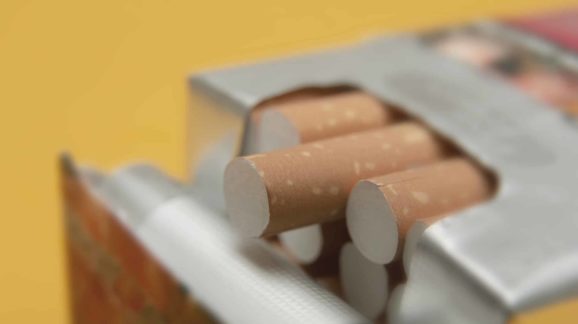A Menthol Cigarette Ban Would Perpetuate the Racist War on Drugs

Photo Credit: Getty
In April the White House announced an apparently historic shift in the U.S. War on Drugs—away from strict prohibition to an approach emphasizing harm reduction. The reasons for this, the announcement claimed, are to better address the overdose deaths caused by illicit opioids and glaring disparities in criminal justice. But, if the Biden administration is serious about reforming America’s drug laws in the pursuit of racial justice, they must reject calls to criminalize menthol cigarettes.
In 2013 a coalition of health “charities” funded by former New York Mayor Michael Bloomberg, initiated a citizen petition requesting the Food and Drug Administration (FDA) to ban menthol cigarettes. But, after years of ignoring the petition, the coalition—now joined by the NAACP and others—sued to force the FDA to respond, which experts believe the agency will do in the next few weeks. Their argument in favor of the ban rests on the fact that, while under 30 percent of white smokers choose menthol cigarettes, around 85 of Black smokers smoke menthols. Banning menthol cigarettes, they assert, will address disparities in smoking prevalence and smoking-related health outcomes. They are wrong.
The reasons someone chooses to start and continue smoking are complex, influenced by individual, environmental, social, economic, and psychological factors. Regulatory attempts to discourage tobacco use rarely account for these complexities; instead they favor blunt approaches meant to force people to quit. These attempts, through taxation, stigma, or bans, have always, without fail, caused more harm than good, especially for marginalized groups.
High taxes in New York City, for example, resulted in a massive and socially acceptable illicit cigarette market. Stigmatization increases stress and reduces a person’s perceived “efficacy,” making it less likely for someone to successfully quit smoking. Discriminatory hiring and housing policies can exacerbate economic disparities. And illegal purchasing of tobacco increases the likelihood of interactions with police, with potentially tragic results. For these and other reasons, a coalition of groups led by the American Civil Liberties Union, have advocated against a ban on menthol cigarettes.
On the surface, the debate appears to pit the demands of public health against Big Tobacco and social justice against criminal justice interests. But, at its heart, the debate is about what substance-related policy priorities ought to be. And, since the very beginning of American drug politics, those priorities have been directed by the needs, fears, and values of the white middle class.
Drug issues perceived as affecting primarily white communities have typically been met with sympathy from the public and policy makers. The opioid crisis, for example, has repeatedly been sold as the “New Face” of addiction, constructed around stories of otherwise law abiding white suburban youths lured into heroin addiction through no or little fault of their own.
Drug issues perceived as affecting minority and urban communities, on the other hand, are usually portrayed through an association with predatory criminals, economic decline, and the breakup of families. The consequence of these racially coded associations has been an enduring double standard in the way we approach drug control: one that emphasizes treatment, harm reduction or decriminalization for white drug users and criminal sanctions for non-white drug users.
The issue of tobacco control is no different. Today, smoking is rare among affluent white populations, and the behavior has been thoroughly coded as “low class.” That is particularly true for mentholsmoking. Members of the white middle-class—the most politically empowered group in America—see neither smoking or anti-smoking laws as much of a threat to themselves. So, it should come as no surprise that as we move to decriminalize cannabis and while anti-tobacco groups advocate against criminal penalties for minors caught vaping (seen as popular among white teens), we are also increasingly moving toward policies that turn tobacco smokers (and especially majority-Black menthol smokers) into criminals or second-class citizens.
That’s because, despite the lip-service to social justice or even public health, shifts in drug policy usually revolve around protecting white middle-class society (from a drug or drug laws) with little regard for how it might affect the health or wellness of other groups. If the Biden administration bans menthol cigarettes, it will be carrying on this long and unfortunate tradition.